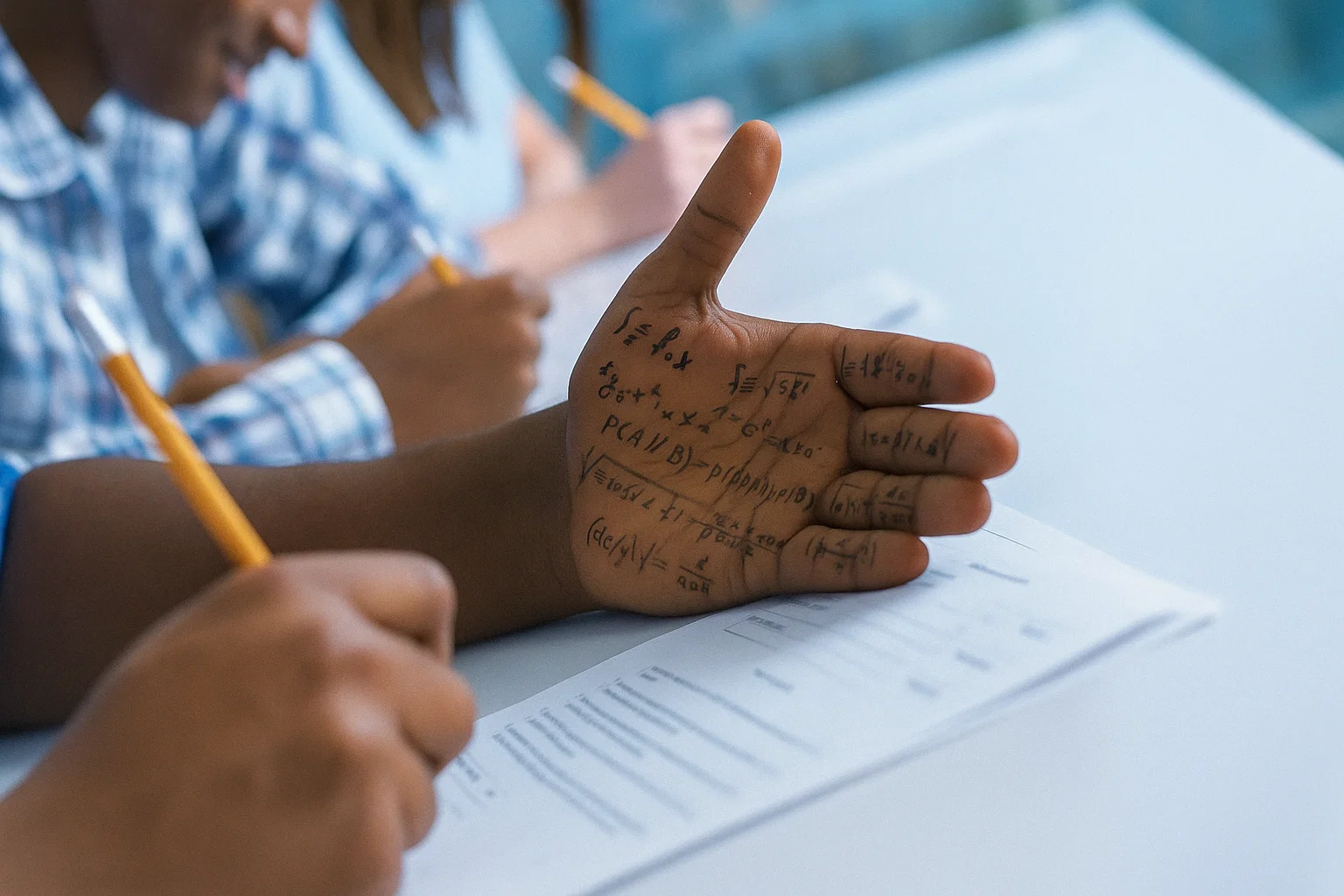EDUCATION

EXAM MALPRACTICE IN NIGERIA: A SYSTEMIC FAILURE OF PARENTS AND SCHOOLS
The rising trend of examination malpractice in Nigeria’s primary and secondary schools has taken a disturbing turn—with parents and school authorities now complicit. ADEREMI OGUNDARE investigates the growing crisis and explores possible solutions.
Just weeks ago, a troubling incident occurred where a mother stormed a school to threaten a teacher for confiscating her child’s phone, which contained answers to an external exam he was to write that day. The situation escalated when the teacher was brutally assaulted by the student’s older brother and his friends—all because he tried to uphold exam integrity.
Such episodes highlight the alarming moral decay in Nigeria’s education system. Increasingly, both parents and school owners see nothing wrong with helping students cheat, normalizing malpractice in both public and private schools—and even tertiary institutions.
The Pressure to Cheat
Jason Rufus, a teacher in Lagos’ Surulere area, attributes the problem partly to fear and lack of self-confidence among students.
Clement, a secondary school student in Akure, admitted to cheating using smuggled materials, answer exchanges, and copying. “I didn’t cheat in primary school, but by SS2, I started struggling academically. I was afraid of failing, of being seen as unserious by my family and friends, and of disappointing my parents,” he confessed.
Parents Leading the Charge
Oladapo Olayemi, Vice Principal (Academic) at Queen’s School, Ibadan, disclosed that many parents actively seek leaked questions and even bribe school authorities to assist their children in exam halls. In extreme cases, some pay to have professionals sit for their children's exams under the so-called “Non-Appearance” (NA) arrangement.
"Parents often register their wards at ‘special centres’ known for aiding cheating, and some even push for such support during PTA meetings,” said Fadare Opeyemi, a public school teacher. He advocated installing CCTV cameras and audio recording devices in exam halls, and ensuring those involved in malpractice face strict penalties.
Dr. Oluwakemi Adejumo, a university lecturer, criticized parents who see exam cheating as merely helping their children succeed. “Instead of nurturing their children’s strengths, they spend large sums to guarantee artificial success. Many schools, focused more on business than education, manipulate results and encourage cheating to satisfy demanding parents.”
She recommended that parents:
Avoid unhealthy comparisons among children
Monitor their children's learning at home
Support teachers
Encourage schools to prioritize student-centered teaching and hire qualified educators
Utilize school counselors to guide both parents and students
The Role of Schools
Education consultant Oluwanifemi Olarinde noted that many private schools promote malpractice subtly to avoid damaging their reputations. “They pressure teachers to ensure students pass, regardless of student effort. Some schools threaten teachers who refuse to enter exam halls and assist students.”
She shared a personal story: “When I refused to be in the exam hall during my subject, I was rebuked, accused of being proud and uncaring. Despite the backlash, my students still performed well, but it was emotionally exhausting.”
Tackling the Problem
Olubunmi Adewakun, an education trainer and advocate, described exam malpractice as a “festering sore” that undermines academic standards and produces ill-equipped graduates. She emphasized that both parents and schools are to blame.
“Schools often lack strong monitoring systems. Teachers and invigilators may either be complicit or poorly trained. Some schools, desperate to maintain a reputation for high performance, resort to facilitating cheating,” she explained.
She called for a systemic overhaul:
Strengthen exam monitoring and ethics training for teachers and invigilators
Use surveillance technologies to deter malpractice
Improve teaching quality through investment in resources, smaller class sizes, and teacher development
Olarinde also recommended:
Employing qualified and impartial external exam supervisors
Temporarily shutting down schools caught facilitating cheating
Encouraging parents to prepare children at home instead of pressuring schools
Preventing subject teachers from being present in the hall during their exams
Counseling students on the dangers and long-term consequences of malpractice
"This represents a significant development in our ongoing coverage of current events."— Editorial Board









